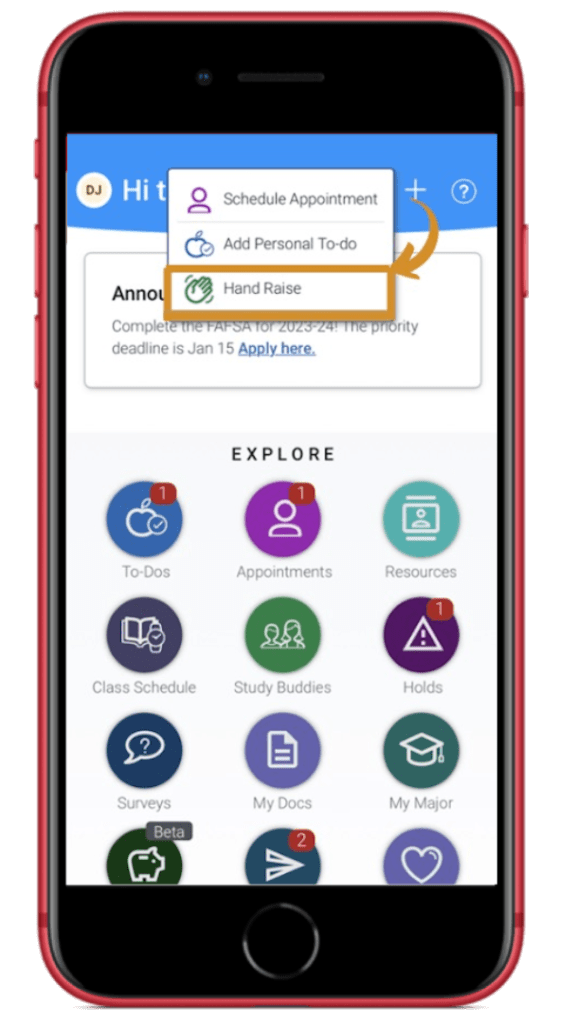
EWU’s Early Warning System (EWS)
The EWS helps us monitor our student’s progress and intervene sooner rather than later to provide the support and resources needed to help students overcome potential challenges that may interfere with student’s success in college.
The Early Warning System and Retention
Each term, we look at retention rates for students who have Early Warning cases opened by faculty or others. We compare students who responded to outreach (“Outreach Support Given”) vs students who did not respond (“No Response to Outreach”) and therefore do not receive support.
We see higher retention rates for those students receiving support than those who did not respond. Our next steps are seeing how we can increase the number of students who respond to this outreach.
Retention Results
| Year | Outreach Support Given | No Response to Outreach | FTIC Outreach Support Given | FTIC No Response to Outreach |
|---|---|---|---|---|
| AY 2023-24 | 59.2% | 51.4% | 51.6% | 43.5% |
| AY 2022-23 | 59.4% | 43.3% | 48.6% | 25.8% |
| AY 2021-22 | 57.6% | 44.8% | 58.8% | 43.3% |
| AY 2020-21 | 57.8% | 44.2% | 57.4% | 37.6% |
FTIC (First Time In College) cases are generally 25-30% of all cases
Alerts
Alerts allow any faculty/staff member to inform the system by creating an alert to draw attention to a student who may be showing signs of needing support (negative alert) or to give recognition to a student who is doing well (positive alert.)
Cases
Cases are Alerts that are viewed as having a higher level of urgency and require support staff or an advisor to contact the student. Support staff will connect with the student and see what can be done to help identify and resolve the issue.
Cases are automatically assigned to the appropriate support staff. Alerts that do not elevate to a Case generate a support email sent to the student including links to campus resources such as PLUS, CAPS, the Student Care Team, Student Financial Services, etc.
Progress Reports
Progress Reports are another way of informing the Early Warning System. This component allows administrators to proactively request feedback from faculty on individual student performance in specific courses or for specific groups of students e.g. student athletes or students enrolled in CAMP.
Ad-Hoc Alerts or Standalone Alerts
Ad-hoc or Standalone Alert is not the same as a progress report. This can be issued by any person on any student at any time.
Hand Raise
A new Navigate Student feature, “Hand Raise”, allows students to ask for help in the Navigate Student mobile application and is tied to the existing Early Warning System.
Here are the specific ways that students can raise their hand and ask for help:
- I need tutoring
- I need to declare or change my major
- I need help with housing, food, or clothing
- I am feeling stressed and overwhelmed
- I need to report bullying, discrimination, or misconduct
With each alert, the students will receive information and/or staff outreach to address to their specific needs.
Our effort to meet students’ needs is a partnership with Program Leading to University Success (PLUS), Student Accommodations and Support Services (SASS), Financial Aid, and the Degree Completion Team.


